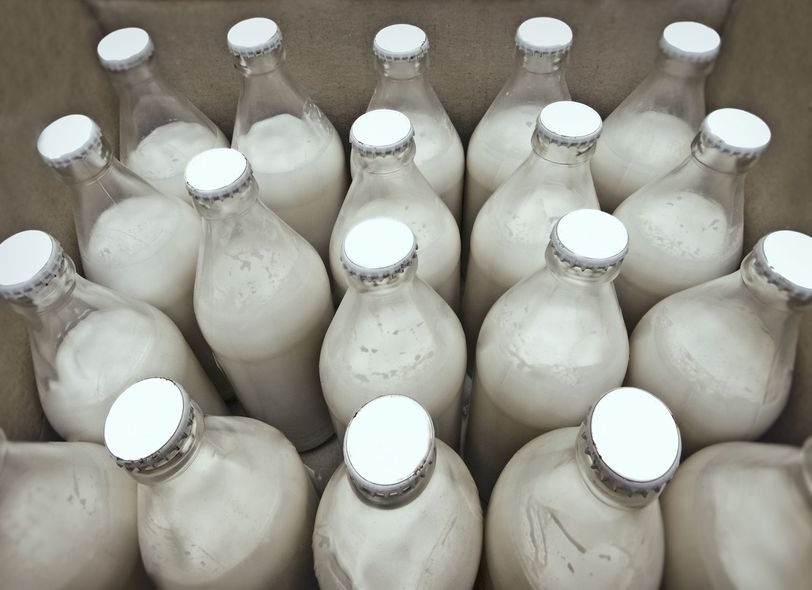
Three people have been hospitalised following an E.coli outbreak at an Isle of Wight farm, and past consumers who have bought raw milk from the farm have been asked to dispose of it.
The outbreak of E. coli has been linked to unpasteurised milk from Briddlesford Lodge Farm, which has now removed its raw milk from sale.
The three people in hospital are being treated for haemolytic uremic syndrome, a complication of E. coli that can lead to kidney failure.
Anyone who has bought raw, unpasteurised milk from the farm have now been warned to return or dispose of it following the outbreak, which has sparked a public health investigation.
Dr Ishani Kar-Purkayastha from Public Health England said the raw milk had been removed from sale.
"We are asking anyone who has raw milk purchased from Briddlesford Farm on, or before Monday, 25 September 2017, to either return it to the farm or dispose of it," he said.
In a statement, the farm said: "We are especially concerned about the well-being of those affected by this bug, and we wish them and their families every good fortune at this terrible time."
"We are especially concerned about the well-being of those affected by this bug, and we wish them and their families every good fortune at this terrible time. We want families to enjoy learning about the farm and we are saddened to think that something has gone so wrong.
"Our pasteurised milk is a safe product to drink and meets all quality and hygiene standards."
The Food Standards Agency (FSA) says unpasteurised or ‘raw’ milk and ‘raw’ cream may contain harmful bacteria that cause food poisoning.
"If you have a weakened immune system, you are particularly vulnerable to food poisoning and should not consume unpasteurised milk and cream. Vulnerable groups include pregnant women, infants and children," guidance on its website states.
